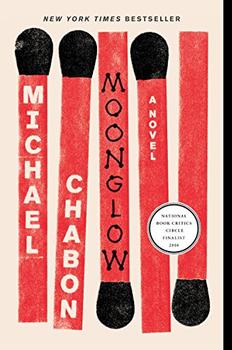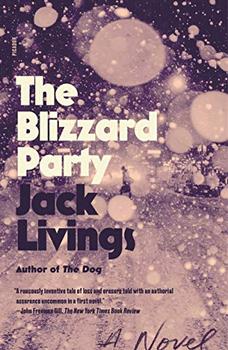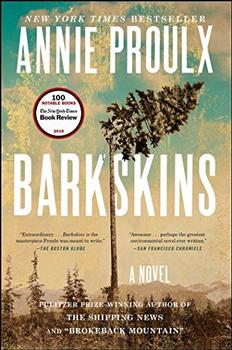Summary | Excerpt | Reviews | Beyond the book | Read-Alikes | Genres & Themes | Author Bio

Following on the heels of his New York Times bestselling novel Telegraph Avenue, Pulitzer Prize-winning author Michael Chabon delivers another literary masterpiece: a novel of truth and lies, family legends, and existential adventure - and the forces that work to destroy us.
In 1989, fresh from the publication of his first novel, The Mysteries of Pittsburgh, Michael Chabon traveled to his mother's home in Oakland, California, to visit his terminally ill grandfather. Tongue loosened by powerful painkillers, memory stirred by the imminence of death, Chabon's grandfather shared recollections and told stories the younger man had never heard before, uncovering bits and pieces of a history long buried and forgotten. That dreamlike week of revelations forms the basis for the novel Moonglow, the latest feat of legerdemain from Pulitzer Prize-winning author Michael Chabon.
Moonglow unfolds as the deathbed confession of a man the narrator refers to only as "my grandfather." It is a tale of madness, of war and adventure, of sex and marriage and desire, of existential doubt and model rocketry, of the shining aspirations and demonic underpinnings of American technological accomplishment at midcentury, and, above all, of the destructive impact - and the creative power - of keeping secrets and telling lies. It is a portrait of the difficult but passionate love between the narrator's grandfather and his grandmother, an enigmatic woman broken by her experience growing up in war-torn France. It is also a tour de force of speculative autobiography in which Chabon devises and reveals a secret history of his own imagination.
From the Jewish slums of prewar South Philadelphia to the invasion of Germany, from a Florida retirement village to the penal utopia of New York's Wallkill prison, from the heyday of the space program to the twilight of the "American Century," the novel revisits an entire era through a single life and collapses a lifetime into a single week. A lie that tells the truth, a work of fictional nonfiction, an autobiography wrapped in a novel disguised as a memoir, Moonglow is Chabon at his most moving and inventive.
Yes, Chabon does have quite a bit of ground to cover – but remember, he's practically telling his grandfather's whole life story. How he achieves this with such clarity and precision is what makes it so enjoyable. To be more specific, he takes a snippet from this grandfather's account in each chapter, and then segues into a fictionalized retelling of that event. In this way, Chabon blurs the lines between reality and imagination, making the inventions all the more real and the truths all the more alive; it is much like a docu-drama, where we get a dramatization of historical events...continued
Full Review
(660 words)
This review is available to non-members for a limited time. For full access,
become a member today.
(Reviewed by Davida Chazan).
 Of the many forms of resistance during WWII, some of the most fascinating and poignant stories involve hiding young Jewish children – including the most famous of them all, that of Anne Frank. While her story reached international acclaim, other tales went untold for decades, partially because many of them took place in countries that ended up under Communist rule after the war. However, with the fall of Communism, these stories started to come to the fore.
Of the many forms of resistance during WWII, some of the most fascinating and poignant stories involve hiding young Jewish children – including the most famous of them all, that of Anne Frank. While her story reached international acclaim, other tales went untold for decades, partially because many of them took place in countries that ended up under Communist rule after the war. However, with the fall of Communism, these stories started to come to the fore.
For example, I was privy to the story of a Polish woman who I heard speak at a gathering at the Jerusalem offices of the American Jewish Joint Distribution Committee. She was called to her mother's deathbed who made a final confession – that she wasn't actually her ...
This "beyond the book" feature is available to non-members for a limited time. Join today for full access.

If you liked Moonglow, try these:

by Jack Livings
Published 2022
A panoramic novel set in New York City during the catastrophic blizzard of February 1978.

by Annie Proulx
Published 2017
From Annie Proulx - the Pulitzer Prize- and National Book Award - winning author of The Shipping News and Brokeback Mountain, comes her masterwork: an epic, dazzling, violent, magnificently dramatic novel about the taking down of the world's forests.
Our wisdom comes from our experience, and our experience comes from our foolishness
Click Here to find out who said this, as well as discovering other famous literary quotes!